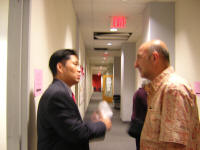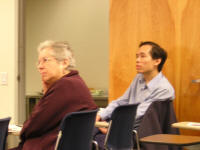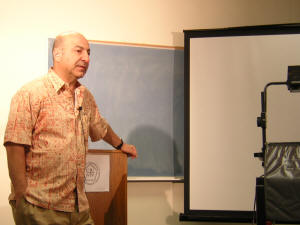This presentation summarizes some of the key findings of a four-year study of the post-911 discriminatory backlash against Middle Eastern and South Asian Americans. This backlash has taken at least two forms: 1) hate crimes and biased incidents; and 2) the USA Patriot Act, and the series of government initiatives that followed 9/11.

To effectively examine the effects of the backlash on the impacted communities, we have conducted 60 in-depth interviews with the top officials of virtually every Middle Eastern and South Asian community-based organization (CBO) across the United States, supplemented with 15 interviews with civil rights experts and government officials. The immigrant and ethnic CBOs have served as mediators between their constituencies and the broader American society. What sets the post-9/11 backlash apart from previous governmental retaliation against minorities in times of war (most notably, the Japanese Internment during WWII) is that the citizens were spared, though noncitizens were indiscriminately targeted. Middle Eastern citizens seem to have bypassed harsher treatments because the political climate has changed.

The civil rights movement has introduced new checks and balances that monitor the U.S. government’s overreactions and abuses. Nevertheless, there has been a tangible negative cumulative effect of the backlash on Middle Eastern and South Asian American ethnic communities, resulting in a chilling atmosphere of fear and intimidation. Perhaps the only silver lining of this crisis is an increased awareness of Middle Eastern Americans, and a greater understanding of their cultures and Muslim religion.


